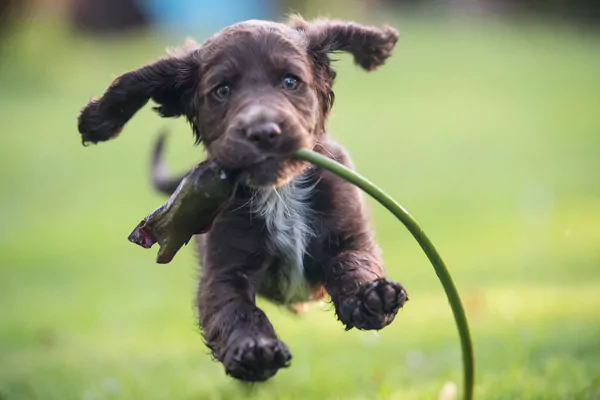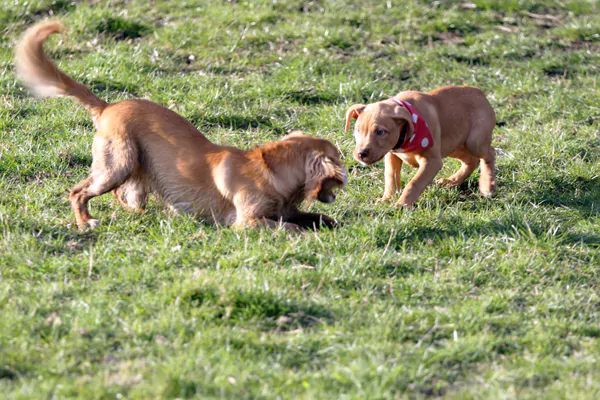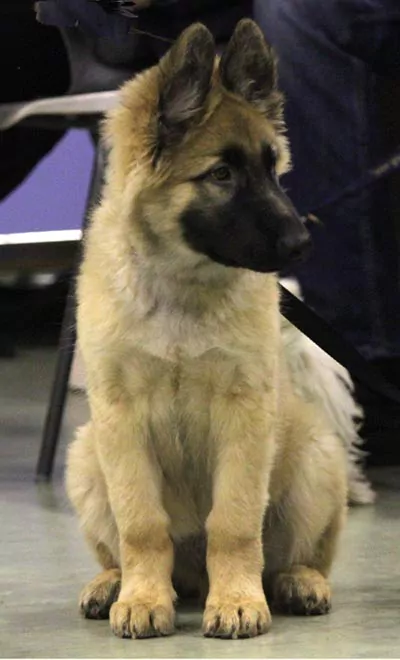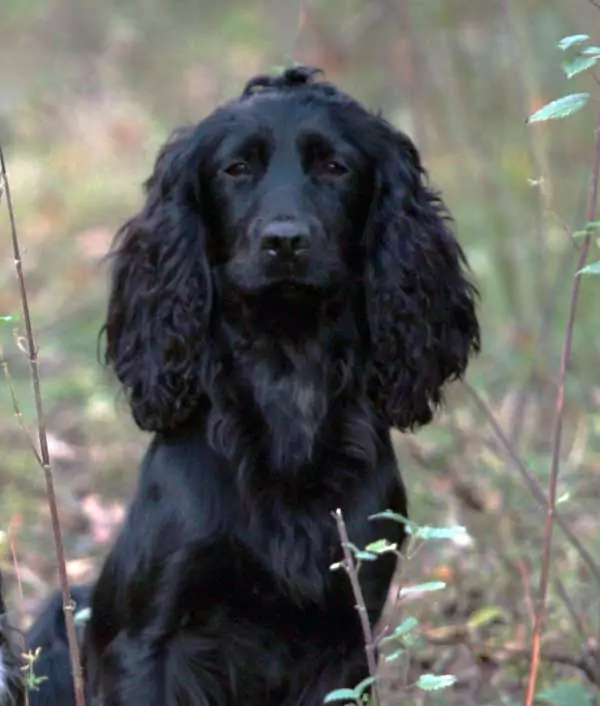Critical Periods in Your Pup’s Growth
Doglistener Dog Behaviourist and Obedience Trainer explains Critical Periods in your Puppy’s Growth from age 0 to 4 years old. This is a great article to let you know what’s happening to your puppy during its first critical weeks up to week 16
The period between 0 and 16 weeks is the most important period in your puppies life. This period covers the human socialisation period 0 to 12 weeks and canine socialisation period 0 to 16 weeks He will learn more during that short space of time than at any other time in his life. windows of opportunity for learning will open, however, if they are not stimulated whilst they are open they close, and the opportunity will be lost. This article explains what must you must do and more important when you must do it.

Neonatal, Transition, Awareness, and Canine Socialisation: Puppies should be with their mother and littermates for at least seven weeks of age.
During this period, your puppy learns about social interaction, play, and inhibiting aggression from its mother and littermates.
This is also the time not long after the birth that the breeders should regularly pick up and handle the puppies., this is vital to the way the pups view humans.
Handling on a regular basis when they are still blind and deaf causes them a mild stress response that allows them to be healthier, bond more with humans, which makes them more intelligent and easier to train.
Puppies must stay with their mother and litter-mates through this critical period. As the puppies learn the most important lesson in their lives, they learn to accept discipline. It is at this time that they also learn not to toilet in the nest. That allows you to train your puppy not to defecate and urinate in the house.
0 to 12 Weeks Human Socialisation Period and The best time to take a puppy home is 7 weeks then you have nine whole weeks to work with the dog over this incredibly important period. Having said that there is a law in the UK that states you cannot buy a puppy until it is 8 weeks old.
Some laws as we know can be outdated. This is one example, science and behavioural knowledge have moved on since that law was put in place. We now know that the first fear period peaks at 8 weeks. So to take a puppy from everything it knows such as the breeder, littermates and mum at this critical time can have serious repercussions.
The puppy now has the brain waves of an adult dog, but the attention span is short. This period is when the most rapid learning occurs. Learning at this age is permanent so this is a perfect time to start training, but make it fun not arduous.
This is also the time to introduce the puppy to things that will play an important part in his life. Different people, places, animals, other dogs and especially puppies, vacuum cleaners, washing machines, and unusual sounds, in a positive non-threatening way.
The human socialisation period effectively ends at 12 weeks. It is vitally important to get a minimum of a hundred people handling your dog. Hopefully, the breeder will have started this procedure. However, you must make sure you carry it on. You can take your puppy out after the first vaccination either carry it or in a doggy bag. Take it to your local coffee shop, your local school when the kids are coming out, or a pub and get as many people as possible to handle and treat the puppy but make sure it is gentle.
We have opened a pet-friendly coffee shop in Hampton Hill called (1) Paws for Coffee. We also have a (2) Physical Dog Store Currently in Sheen but will be moving to Hampton Hill shortly near Paws for Coffee. It sells everything you need to own for your puppy and adult dog. I also have a (3) Online Store We also run (4) Puppy Classes and One to One Training.
This is also the time to work with any perceived problems, especially aggression. If dogs are showing aggressive behaviour under 16 weeks then get it treated immediately. The dog’s personality and future temperaments are formed around the age of 16 weeks. This relates to the same age as a 5-year-old child.
It is at this time that a child’s personality is fully formed, any learning after that is just based on knowledge and experience. The personality will not change and that is exactly the same for your dog. These puppies must attend a good puppy class where puppies can interact which each other and learn. This MUST be started well before 16 weeks.

0 to 16 weeks is the Canine Socialisation Period: The Majority of dog-on-dog aggression is fear-based and is created during this critical period.
Dogs that are anxious around other dogs, and dogs with poor body language and disconnected meeting and greeting skills are usually created during this same period.
It is the lack of socialisation that has a massive effect on this type of behaviour.
Unfortunately, Vets and their scare tactics are complicit in creating this problem, they suggest that pups cannot meet other dogs or puppies until their full course of vaccinations is completed. This is absolute nonsense. If that was the case they would have to be isolated from their mother.
Young pups can meet with any vaccinated dog or puppy as they are immune from the diseases the vaccine covers. The young pup, especially between the age of seven and sixteen weeks if not carefully socialised with both adult dogs and other puppies will end up with reactive behaviours around other dogs.
They must be allowed to mingle and play with adults and especially other young puppies as that rough and tumble over the top play is what teaches them communication skills, body language and bite inhibition. The complex body language dogs learn at this age is crucial to their later behaviour, when they are approaching unknown dogs.
If they are unable to either perform or understand the greeting rituals, then they are immediately viewed with suspicion and conflict may arise. This is especially so if they have not been socialised with puppies of a similar age. Hence, the requirement to attend puppy classes as soon as possible, from eight weeks of age is absolutely crucial. Read My article (5) Fear and Timidity in Dogs

8 to 10.5 Weeks Fear Imprint Period: Whilst the Pup is going through human socialisation it also has an important fear/hazard avoidance period. This starts at 5 weeks and peaks between 8 and 10.5 weeks.
Any traumatic, frightening or painful experience will have a more lasting effect on the puppy than if it occurred at any other time in its life.
This is the period that you do not handle it correctly can give your dog a lasting fear of traffic, Vets or other frightening experiences, noises or events.
Never ever praise, cuddle, comfort or sympathise with your pup when it is startled or showing fear or anxiety. Dogs and puppies see comfort and cuddle as Reinforcement, not Reassurance. And therefore will increase the behaviour, not eliminate it.
13 to 16 Weeks Seniority Classification Period: Puppy starts to cut teeth and apron strings! Puppy begins testing its position in the family unit.
You must discourage all biting; the dog should have started to learn and understand bite inhibition by this time! It is important that you are a strong and consistent leader.
The period between 0 and 16 weeks is the most important period in your dog’s life.
He will learn more during that short space of time than at any other time in his life.
Other windows of opportunity for learning will open during your dog’s life.
However, what you see at 16 weeks without extensive training and behavioural modification is what you are going to get as an adult.
Therefore, you must work very hard during this vitally important period thereby allowing your puppy to have the very best start in life.
4 to 8 months. Play Instinct Period. Flight Instinct Period: Puppy may wander and ignore you. It is very important that you keep the puppy on a leash at this time! Unless you have followed my (6) Puppy Recall Training Program
The way that you handle your pup at this time determines if he will come to you when called. At about 4-1/2 months, your puppy loses his milk teeth and gets his adult teeth.
That’s the time when he begins seriously chewing! A dog’s teeth don’t set in his jaw fully until around about a year depending on breed and size. During this time, the puppy has a physical need to exercise his mouth by chewing. Training must continue through this period or all your good work may revert back to stage one.
Occasionally the puppy will start to urinate in the house again if this happens, just go back to basic toilet training
6 to 14 months Second Fear Imprint Period or Fear of New Situations Period: Dog again shows fear of new situations and even familiar situations. The dog may be reluctant to approach someone or something new. It is important that you are patient and act very matter-of-fact in these situations. Never force the dog to face the situation.
DO NOT pet the frightened puppy or talk in soothing tones. The puppy will interpret such responses as praise for being frightened. Training will help improve the dog’s confidence. This fear period is normally more marked in male dogs.

1 to 4 Years Maturity Period: You may encounter some increased aggression and renewed testing for position and authority.
if you have spent lots of time with your dog and trained consistently and regularly, then this should not present itself as a problem – in fact, you may hardly notice this change, it is just something to keep in mind.
Continue to train your dog during this period. It is possible that your dog may have another fear period between 12 – 16 months of age.
Regardless of your reason for acquiring a puppy, you’ll have to win it over.
You, not your dog, will have to create a safe and secure environment with ongoing training if your pup is to develop into a well-mannered family member instead of a thug or a burden.
Dogs are animals, not human beings. We are told that like Wolves they are motivated and think as pack animals, In every pack, there is at least one sometimes more than one leader, who tends to make most of the decisions.
Usually, the pack will have at least one and possibly more breeding males and females. In reality, these statements are totally untrue there is no such thing as an Alpha in a Wolfpack.
It is a family unit, father mother and various ages of offspring. We got the idea of Alpha by observing Wolves in captivity. Unfortunately, none of those Wolves were related, so squabbles and fights broke out constantly over hierarchy. All the other members of the pack form a hierarchy in which everyone has a place. Your dog is not a wolf, and though we have tended to think Alpha is an important position.
New scientific knowledge and observation of Wolves in the wild have totally disproved this idea. That is not to say you should not show leadership by controlling resources in a fair and equable way In your home, you and your family become your dog’s family, as do any other dogs you may have.
It is, therefore, your responsibility to establish yourself in a position of authority and trust. If you fail to do this, your dog may question your requests. Many people assume that they are automatically the lead figure just because they are humans. Are you really the leader? Does your dog know it and respect your wishes and commands? Are you controlling all the resources around your dog and does the dog see you as the resource controller? see my article (7) The Alpha Myth. It will change your way of thinking and working with your dog.
Being the leader/controller does not mean you have to be big and aggressive. Nor does it mean that there has to be a battle of strength and wills. Anyone can be the leader/controller. It is an attitude and an air of authority. It is the basis for mutual respect and provides the building blocks of communication and trust between you and your dog. It never means punishment or overt aggression. So take it nice and easy and research as much as you can
© Stan Rawlinson 1999
Updated regularly last update 2020
(1) Paws for Coffee.
(3) Online Store
(4) Puppy Classes
(6) Puppy Recall Training Program.
(7) The Alpha Myth






